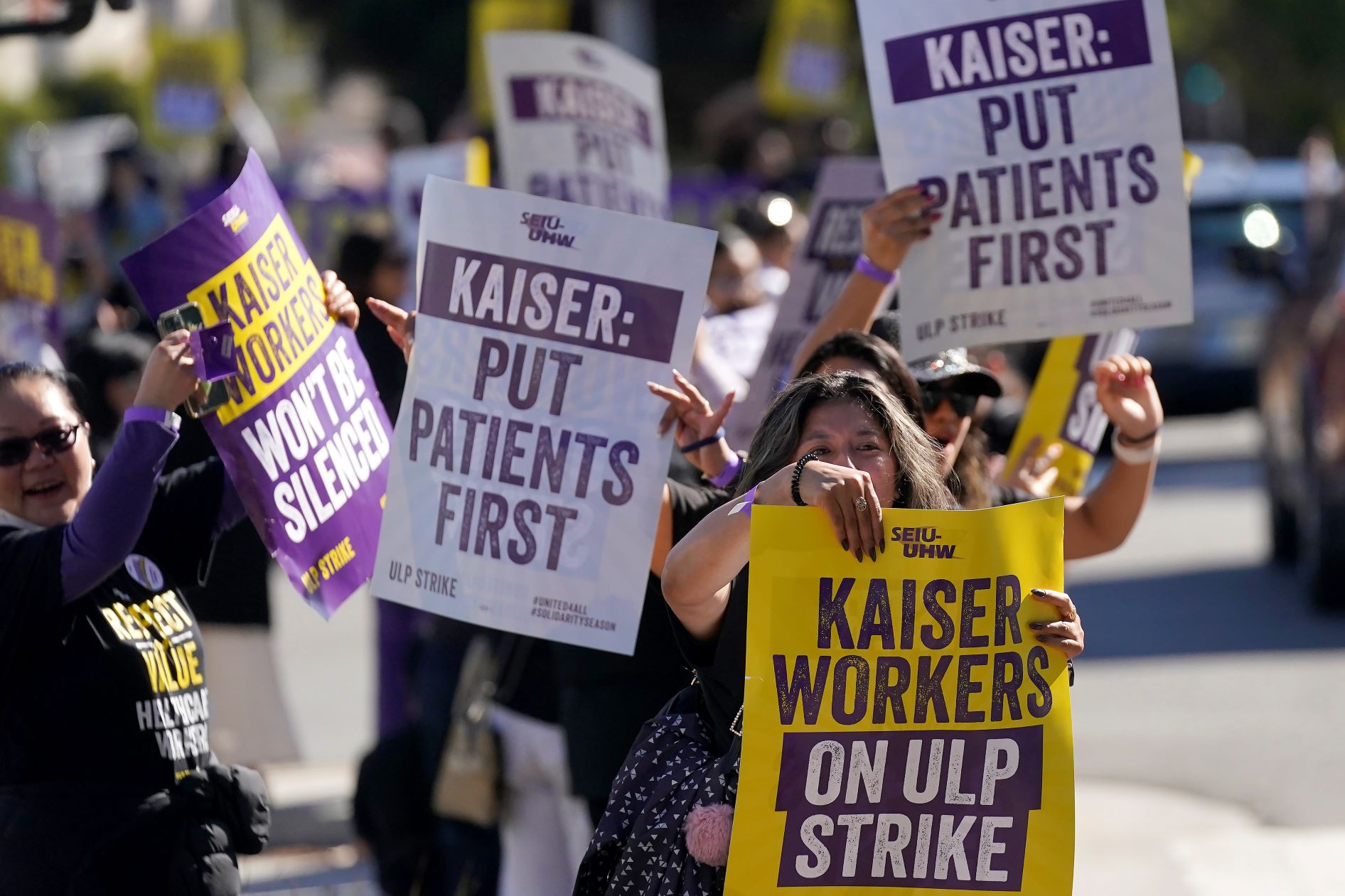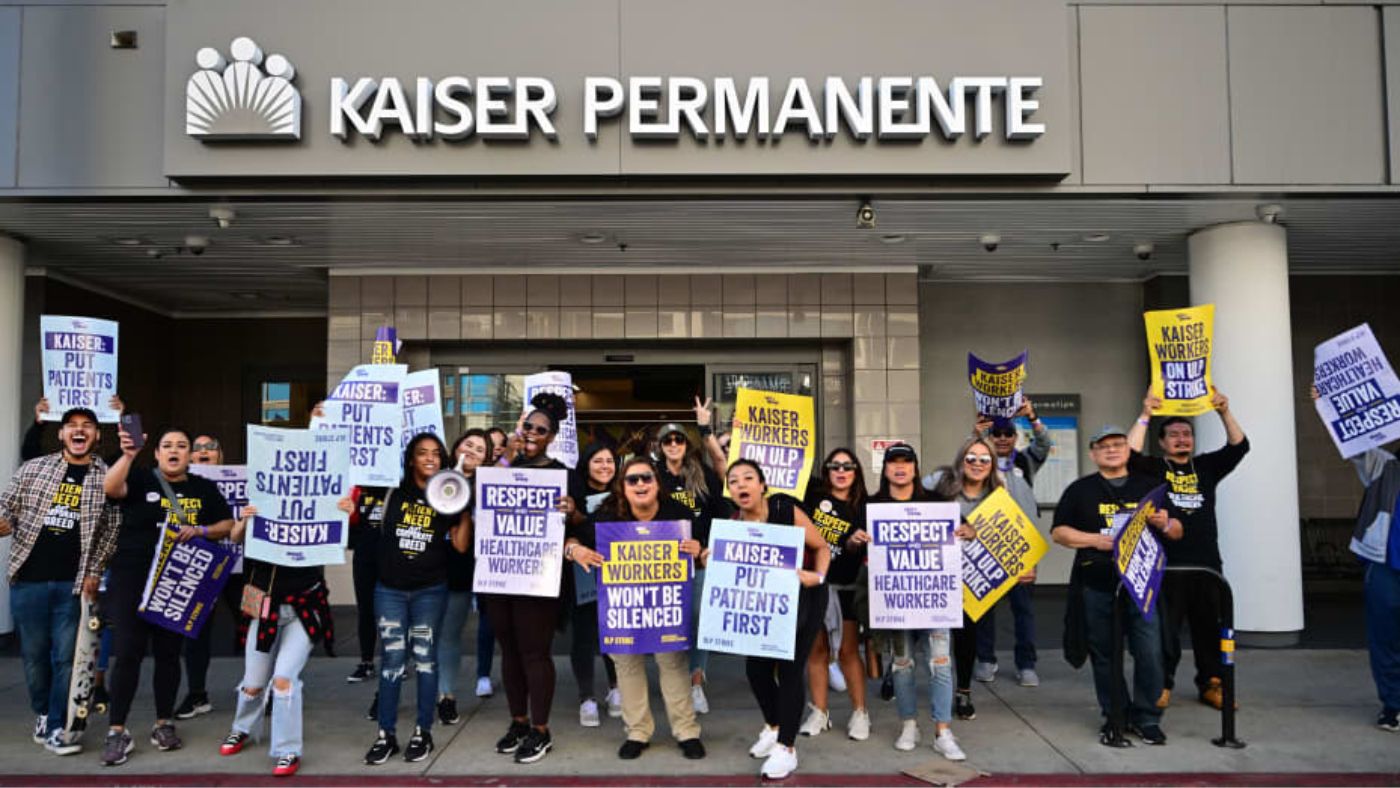Over 75,000 employees of Kaiser Permanente, the largest nonprofit healthcare organization in the United States, commenced a strike on Wednesday across hospitals and medical facilities in five states.
This action followed unsuccessful negotiations between the company and labor representatives regarding staffing levels.
Described as the largest strike of healthcare workers in U.S. history by the Coalition of Kaiser Permanente Unions, the work stoppage affects facilities in California, Colorado, Oregon, Virginia, the District of Columbia, and Washington.
Kaiser Permanente serves nearly 13 million patients through its network of 39 hospitals and over 600 medical offices across eight states and the District of Columbia.
The strike involves a wide range of healthcare professionals, including vocational nurses, emergency department technicians, radiology and X-ray technicians, respiratory therapists, medical assistants, pharmacists, and numerous other roles.
Caroline Lucas, executive director of the Coalition, highlighted concerns over unsafe working conditions and declining patient care due to a staffing crisis.
She stated, “We continue to have front-line healthcare workers who are burnt out and stretched to the max and leaving the industry.” Lucas emphasized the unsustainable situation where workers are injured on the job due to excessive workload.

Kaiser Permanente has assured the public that contingency plans are in place to ensure ongoing patient care during the strike, affirming that all hospitals and emergency departments will remain operational.
The strike by Kaiser Permanente employees reflects broader tensions in the labor market this year, exacerbated by inflation and workforce shortages.
Other sectors, including automotive and entertainment industries, have also experienced significant labor disruptions in recent months.
According to Patricia Pittman of the Milken Institute School of Public Health, healthcare facilities have long struggled with staff retention, particularly during periods of low unemployment.
The challenges have been further compounded by the aftermath of the Covid-19 pandemic, which saw many healthcare workers leaving due to concerns over safety and support.
In response to the strike, Kaiser Permanente acknowledged the stresses faced by healthcare workers and reiterated its commitment to reaching a fair agreement.
However, the union coalition criticized management for failing to adequately address concerns about unsafe staffing levels, characterizing the strike as a protest against what they view as “bad faith bargaining” by Kaiser executives.
Despite these labor disputes, Kaiser Permanente reported significant financial performance, with a profit of $2 billion in the second quarter, compared to a loss the previous year, and $25 billion in revenue.
